Learn Your Way
to A Healthier Life
- All
- Blood Glucose Health
- Heart Health
- Respiratory Health
- Digital Health
- Mental Health
- General Wellness
Troubleshooting your blood sugars: Reactive Hyperglycemia (Somoygi Effect)

September 25, 2024
It happens all the time: We go a little too long without eating, or skip a meal because we are occupied, or go to sleep without dinner or an evening snack. The blood sugar when we skip a meal begins to drop. Some of us feel when our blood sugar becomes low, but many people have no symptoms of low glucose at all. If you don't know to correct a low blood sugar, sometimes your body will try to correct it for you. This phenomenon, called reactive or rebound hyperglycemia, is a protective action that your body takes to prevent the blood glucose from becoming dangerously low.
Reactive Hyperglycemia (Smoygi Effect)
Somogyi phenomenon is also known as rebound hyperglycemia. The Somogyi phenomenon describes a rebound high blood glucose level in response to low blood glucose. The somogyi effect (first discovered my Dr. Michael Somogyi) is caused by nighttime hypoglycemia, which leads to a rebound hyperglycemia in the early morning hours. You see, when your blood glucose drops during the night, hormones are released which trigger the liver to release glucose from storage and add it to the blood. This normally results in a high-fasting glucose reading the next morning.
The Somogyi effect is a result of having extra insulin the body before bedtime, either from not having a bedtime snack, or from having your long-acting insulin not at the proper dose.
The Somogyi effect occurs mainly with type 1 diabetics, but can often occur with people who recently change eating habits, lifestyle or insulin dosage and may be a sign that an adjustment to medications needs to be made. Talk to your Care team or your doctor if you think you have reactive hyperglycemia.

Nina Ghamrawi, MS, RD, CDE
Nina Ghamrawi, MS, RD, CDE, is an experienced Dietitian and Diabetes Educator with over 18 years in clinical nutrition and chronic disease management. Drawing from her diverse background — including personal training, research, product management, and leadership — Nina is committed to empowering individuals to achieve lasting improvements in health and quality of life.
Nina Ghamrawi, MS, RD, CDE, is an experienced Dietitian and Diabetes Educator with over 18 years in clinical nutrition and chronic disease management. Drawing from her diverse background — including personal training, research, product management, and leadership — Nina is committed to empowering individuals to achieve lasting improvements in health and quality of life.
Sign Up For More From iHealth
Receive the Latest News and Special Offers
Related Articles

Tags
A Simple Guide To Why You Need a Flu Shot Every Year
December 1-5 is National Influenza Vaccination Week, serving as a reminder to get an annual flu shot to protect yourselves and others. Infectious disease expert Dr. Jill Seladi-Schulman writes on why it’s necessary for individuals to get a new flu shot every year.
Read more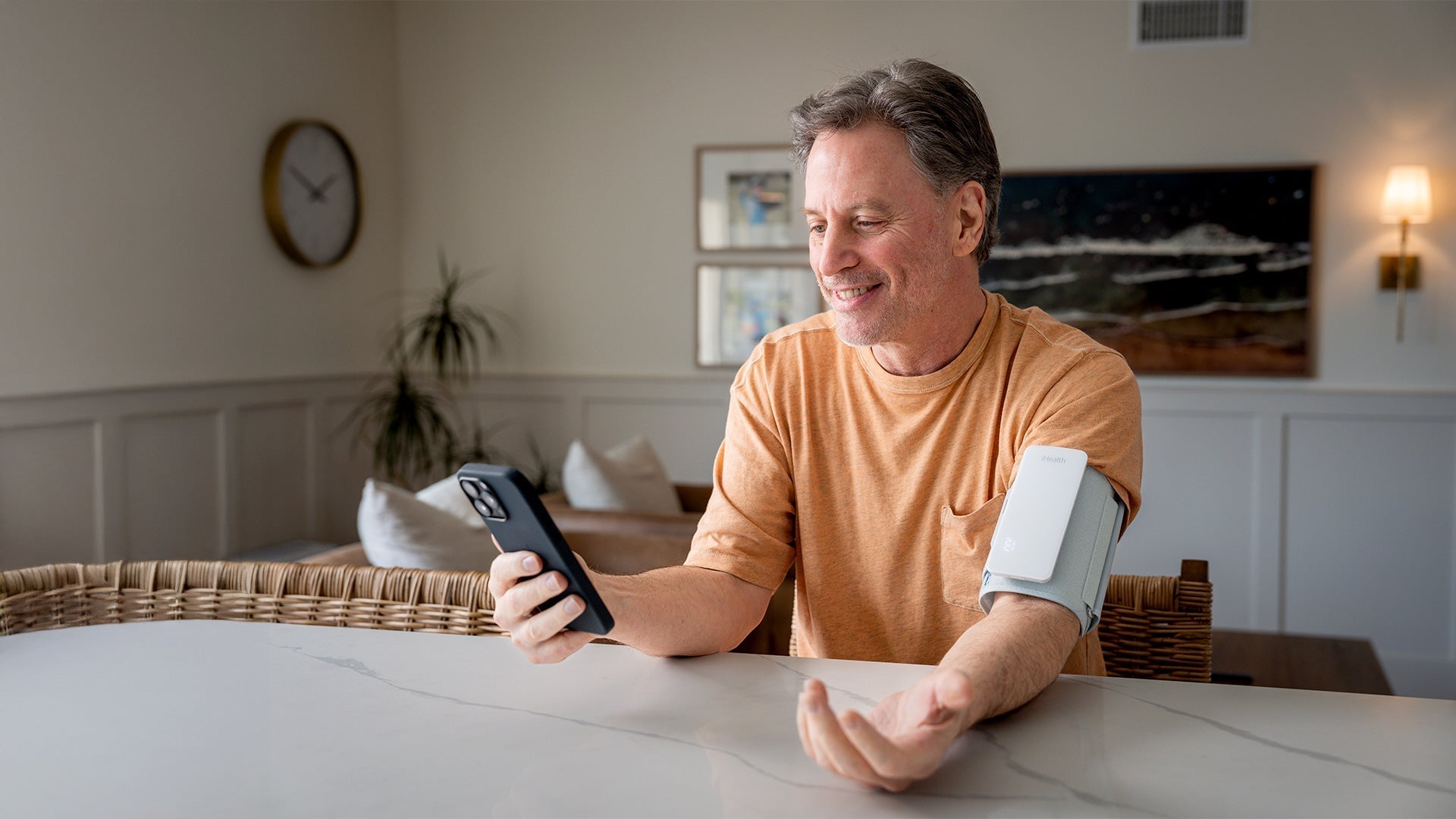
Tags
Why Blood Pressure Goes Up in the Winter & 7 Tips to Manage It
Nearly half of adults in the U.S. have high blood pressure and research shows that rates can more than double during the winter. As the colder months settle in, it’s worth understanding how winter can affect your blood pressure and what you can do to help you stay heart-healthy through the season.
Read more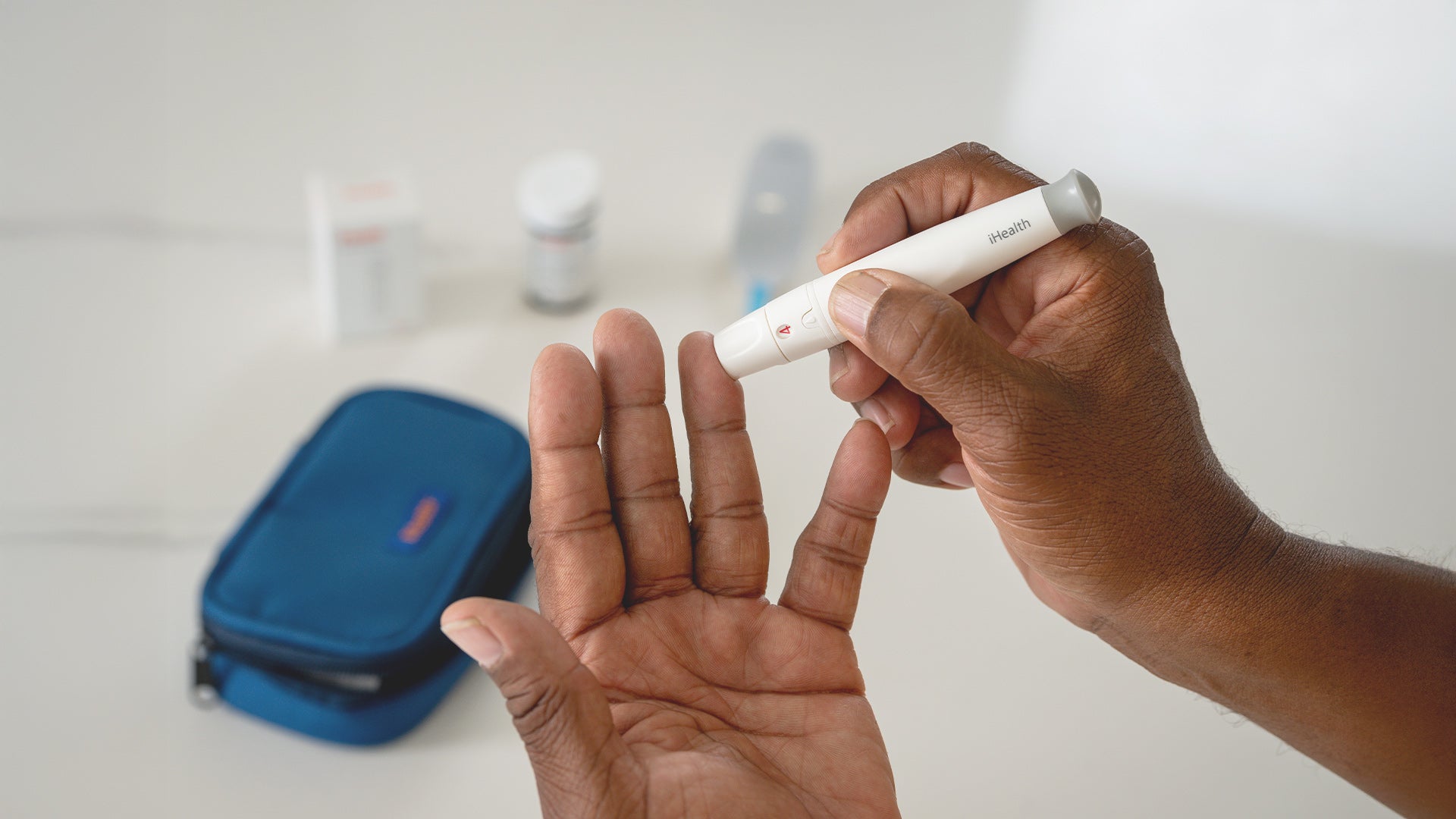
Tags
6 Great Benefits of a Glucometer Subscription
One way to simplify your diabetes management routine is to use a glucometer subscription service that automatically delivers test strips and lancets to your door on a schedule. Here are six benefits of a glucometer subscription.
Read more
Tags
Respiratory Virus Testing Before the 2025 Holidays: 7 Questions Answered
The holiday season is almost upon us and is also a time when respiratory viruses are very common, so it’s a good idea to consider antigen testing before meeting up with your friends and family. We've got answers for common questions you might have on current antigen testing for respiratory viruses around the holidays.
Read more
Tags
7 Ways to Manage COPD & Improve Your Quality of Life
Chronic obstructive pulmonary disease, or COPD, is a progressive lung disease, diagnosed in about 16 million Americans. Living with COPD can make everyday activities feel exhausting, but with the right tools and habits, it’s possible to take control of your symptoms and improve your quality of life.
Read more
Tags
10 Things You Might Not Know About the Flu: 5 Myths and 5 Facts
Here are some best practice tips on how to avoid getting the flu, as well as 5 flu myths and 5 flu facts to be aware of.
Read more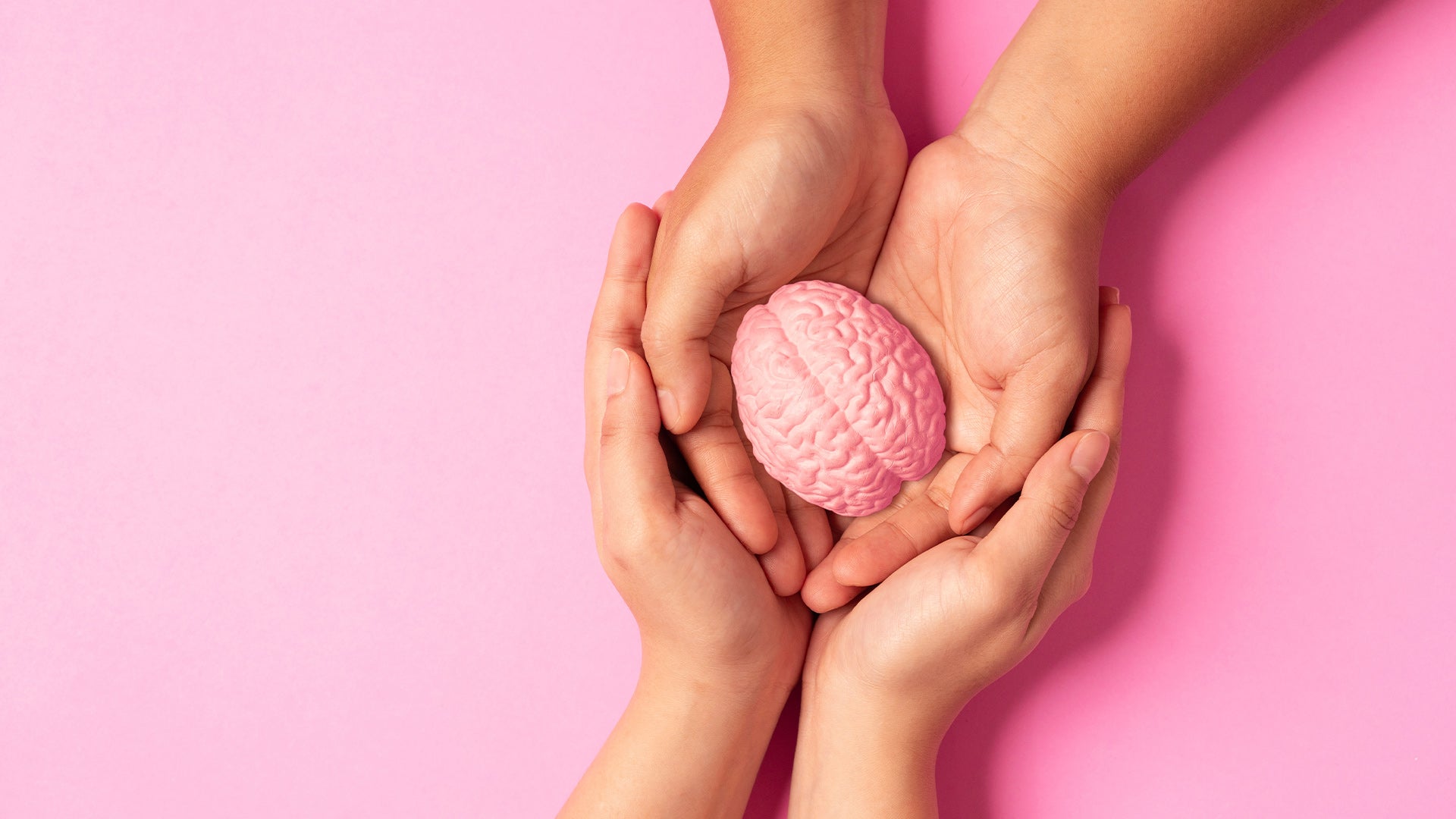
Tags
Stroke Rates are Rising: 7 Ways to Lower Your Risk
World Stroke Day is observed annually on October 29. A CDC analysis shows that stroke rates in the US have been rising over the past 15 years, but 80% of strokes are actually preventable. These 7 steps can help you lower your risk.
Read more
Tags
A Dietitian’s Top 10 Tips for a Healthy Halloween
Whether you’re handing out treats, going trick-or-treating with the kids, or dipping into the candy bowl at work, sugar tends to show up everywhere at Halloween. But here’s the good news: you can enjoy Halloween without sending your blood sugar on a roller coaster ride. With a few smart strategies, you can savor the sweet side of the day while still keeping your blood glucose steady.
Read more
Tags
4 Everyday Exposures Linked to Breast Cancer & What You Can Do About Them
On Breast Cancer Awareness Month, we’re focusing on prevention and the everyday choices that can help lower your risk of breast cancer long before screening begins. Here are some common exposures linked to breast cancer and what you can do to limit or avoid exposure to them.
Read more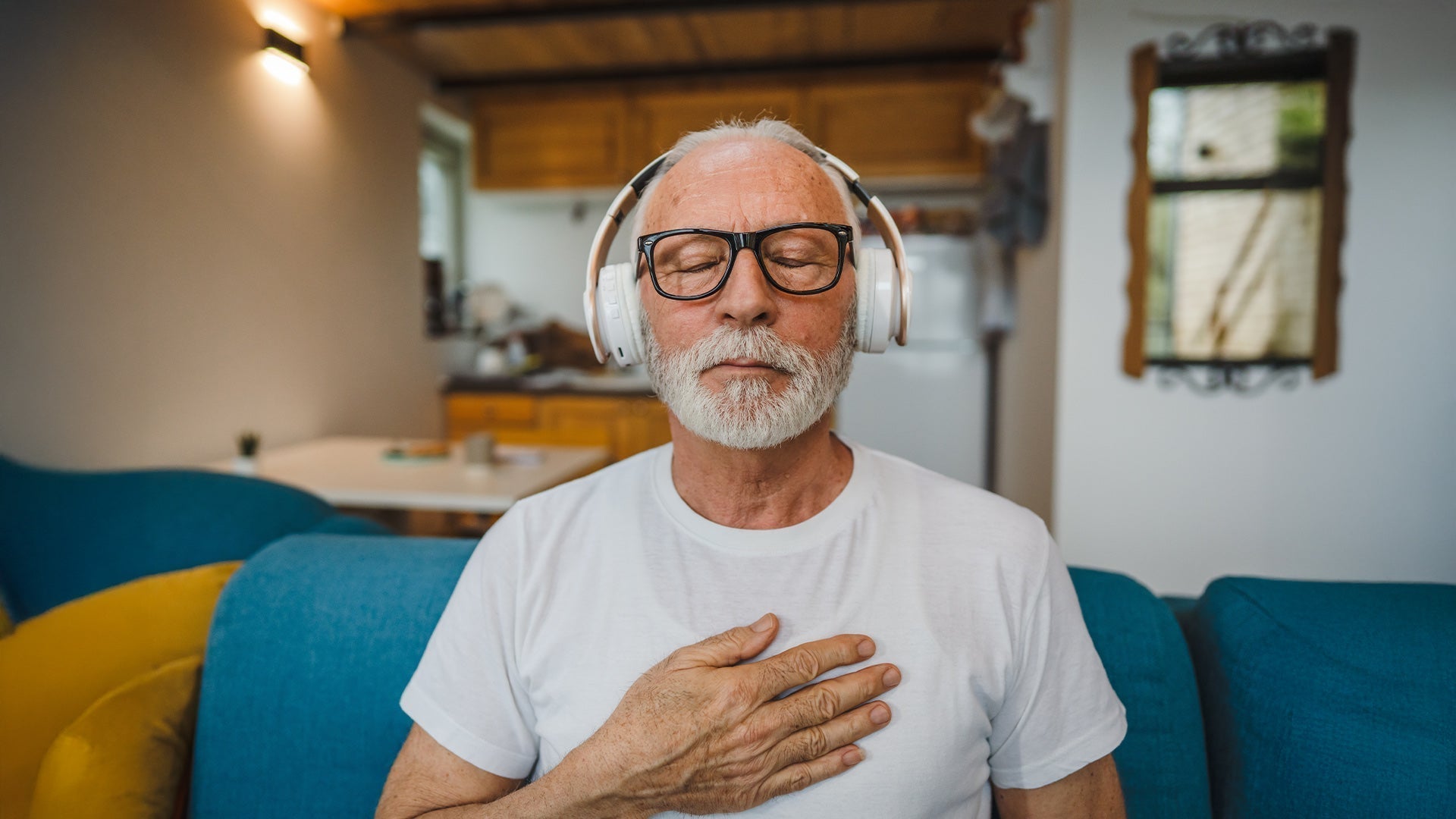
Tags
COVID on the Mind: 5 Facts About COVID-19 and Mental Health
When we think of COVID-19, its physical symptoms typically come to mind. But one aspect of this infection that is not often discussed is how it may affect mental health. Indeed, COVID-19 has been linked to a variety of mental health issues, particularly anxiety and depression. Here are five facts about COVID-19 and its connection to mental health, as well as resources for help with mental health struggles.
Read more
Tags
5 Unexpected Habits That Can Help Keep Your Heart Healthy
September 29 is World Heart Day, an initiative of the World Heart Federation (WHF) in conjunction with the World Health Organization to raise awareness of heart health and cardiovascular diseases. We often think of heart health in terms of diet and exercise. But heart health is also affected by areas we don’t always connect to the heart, like your gums and air quality. Let’s look at these often-overlooked factors and how small changes can help keep your heart beating strong.
Read more
Tags
Do You Have Malnutrition & Not Even Know It?
When most people hear the word malnutrition, they think of not eating enough food. But malnutrition actually comes in many forms and it can affect anyone, at any age, and at any body size. It’s not just about how much you eat– it’s also about what you eat, how your body absorbs nutrients, and even how chronic conditions or medications impact your nutritional status. When most people hear the word malnutrition, they think of not eating enough food. But malnutrition actually comes in many forms and it can affect anyone, at any age, and at any body size. It’s not just about how much you eat– it’s also about what you eat, how your body absorbs nutrients, and even how chronic conditions or medications impact your nutritional status.
Read more
Tags
5 Things To Know About the New COVID Variant XFG (Stratus)
As of September 5, the Centers for Disease Control and Prevention (CDC) estimated that COVID-19 infections were still growing or likely growing in 24 states. This uptick in infections is largely driven by a new COVID-19 variant called XFG, or “Stratus." Here are five things to know about this new variant.
Read more
Tags
What Can You Do to Manage High Cholesterol?
Approximately 86 million American adults (20 years and older) have high cholesterol, representing about 36% of the adult population. High cholesterol doesn’t always manifest obvious symptoms, but can quietly increase your risk of serious health problems over time. The good news is that there’s a lot you can do to prevent and manage high cholesterol.
Read more
Tags
How Is Blood Pressure Affected by Sleeping Habits?
Studies have shown that too little sleep or even too much sleep, as well as erratic sleep schedules could have an adverse effect on your blood pressure. What is the ideal number of hours to sleep and how can one stick to a consistent sleep schedule? And how can at-home blood pressure monitoring be an aid in maintaining healthy sleep habits?
Read more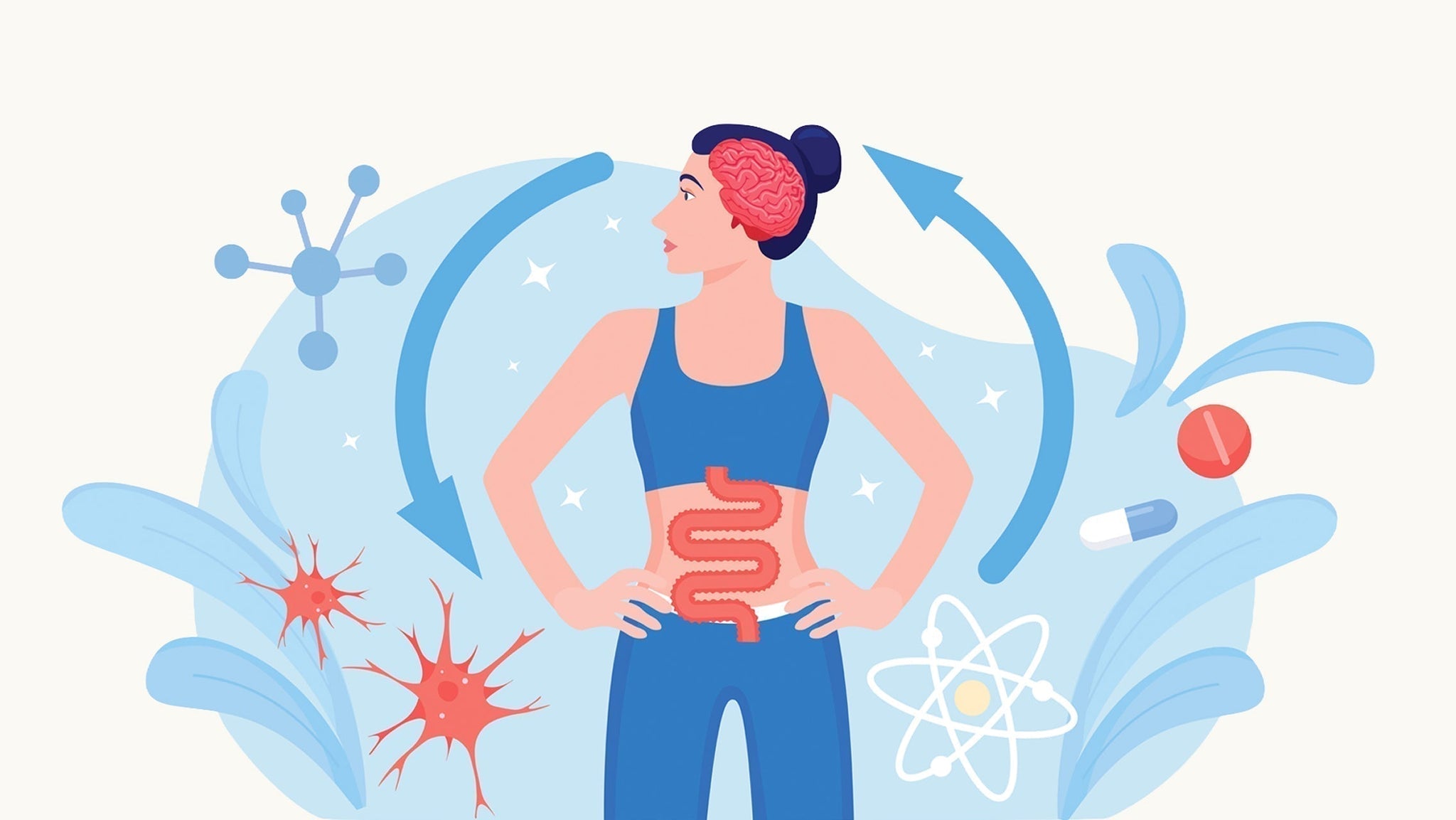
Tags
Yes, Your Gut Health Affects Your Mental Health – and Overall Wellness
Your gut isn’t just a digestive system--scientists are discovering that it plays a surprisingly powerful role in your mental and emotional health, as well as your overall wellness. At the heart of it is the gut-brain connection, also called the gut-brain axis.
Read more
Tags
Wellness = Preventative Care for Chronic Conditions
August is National Wellness Month. Learn how wellness routines can reduce the risk of chronic illnesses, which afflict 76.4% of US adults, in this exclusive blog written by Maggie Aimes. Maggie is a registered nurse and healthcare writer whose work has been published in AARP, Everyday Health, Health and Well+Good.
Read more
Tags
6 Common Back-To-School Illnesses In Children
Back-to-school means back-to-school illnesses, as germs can spread in crowded classrooms. In her blog exclusively for iHealth, Dr. Jill Seladi-Schulman PhD, an infectious disease expert and writer who has been featured in Healthline and Medical News Today, covers six common back-to-school illnesses and how to reduce the risk of your child from catching one of these bugs.
Read more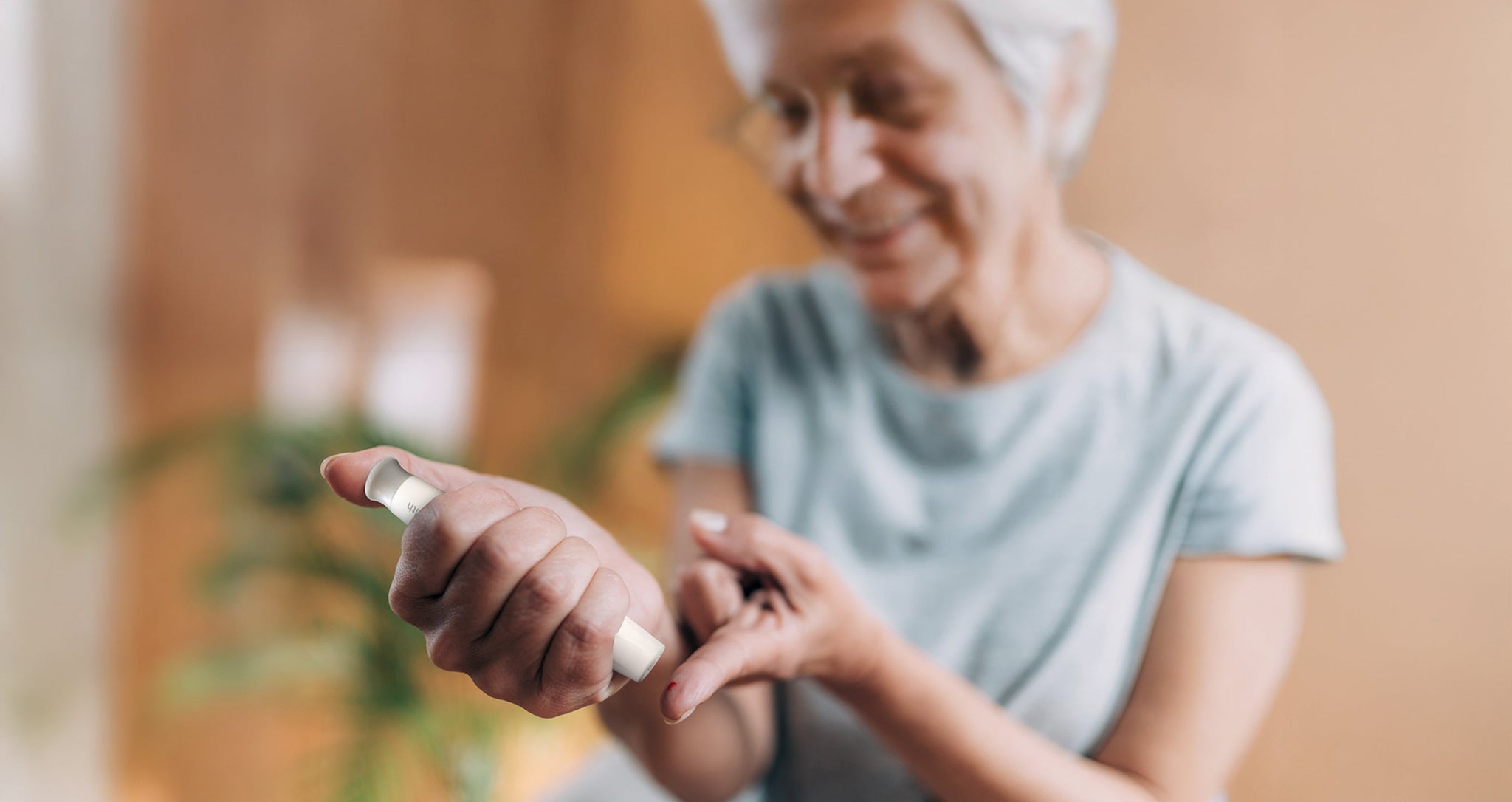
Tags
Smart Glucose Monitoring For Seniors
Nearly 1 in 3 adults over the age of 65 in the U.S. is living with diabetes. While daily blood sugar monitoring is a cornerstone of diabetes management, traditional glucometers can be tricky for seniors to use. Today's thoughtfully designed smart glucose monitors with their senior-friendly features, combine simplicity, comfort and modern technology to make blood sugar tracking easier for older adults.
Read more
Tags
International Self-Care Day: Making Your Own Wellness a Priority
Key to how individuals deal with everyday stress is to slow down and take time for self-care, according to wellness experts. International Self-Care Day, commemorated annually on July 24, encourages the prioritization of self-care for overall health and well-being. Here are practical tips on how to incorporate self-care into a regular routine.
Read more
Tags
What We Learned From COVID—And How It’s Still Shaping Public Health
Although the pandemic stage of COVID is behind us, the virus itself hasn’t disappeared and continues to shape how we think about public health. The good news is we are not starting from scratch. We now have the tools and the awareness to respond quickly to COVID.
Read more
Tags
The Evolution of Multi-Pathogen Testing
Six years ago, testing for respiratory illnesses like flu and RSV was mostly limited to hospitals, and often involved multiple tests for the different viruses. Today, multi-pathogen testing is used everywhere—including from the comfort of home. Learn how innovations driven by the SARS-CoV-2 coronavirus make it possible to detect COVID-19, Flu A/B and RSV, while strengthening preparedness for future pandemics around the world.
Read more
Tags
BBQ Tips for a Heart-Healthy Fourth of July
You don’t have to choose between flavorful food and your health this Independence Day. With a few simple strategies—like using herbs instead of salt, grilling lean proteins and staying well-hydrated—you can enjoy the full BBQ experience while keeping your blood pressure in check. Learn how to plan a festive and blood pressure-friendly cookout that everyone can enjoy.
Read more
Tags
Heat, Hydration and Health Checks: Managing Prediabetes During the Summer
If you’re one of the millions of Americans living with prediabetes, staying hydrated, choosing seasonal foods and using technology to understand how heat affects your body can help you manage blood glucose levels all summer long. Learn why summer is both a challenge and an opportunity for blood sugar control and how certain strategies and tools can help protect your long-term health.
Read more
Tags
Protecting Teams and Communities During Summer COVID Surges
Healthcare experts at Harvard Medical have found that there can be outbreaks of COVID throughout the year. So even during the summer, organizations need to be mindful and implement safety measures. The good news: preventative action for COVID doesn’t necessarily mean disruption to the organization. With tools like updated boosters, air purifiers and rapid testing, teams can proactively monitor and manage their health all season long.
Read more
Tags
Smart Gear, Safer Jobs: How Wearable Technology is Protecting Workers
Whether they happen behind desks, on hospital floors or in warehouses, workplace injuries can happen anywhere. Learn how wearable technology helps companies with boosting safety measures. From posture sensors to fatigue trackers, wearables not only prevent injuries and monitor health risks, but they also empower employees and encourage active participation in their own safety and wellbeing.
Read more
Tags
Lowering Your Blood Pressure? You Might Also Reduce Dementia Risk
High blood pressure (BP), also known as hypertension affects nearly 88% of all adults in the US. Hypertension not only increases their risk of serious vascular damage, but also raises the risk of dementia. High BP is extremely common, but it is also treatable and manageable through a combination of healthy lifestyle choices and medications when needed. Whether you're in your 30s looking to prevent problems or in your 70s seeking to preserve the sharpness you have, it's never too early or too late to prioritize blood pressure control.
Read more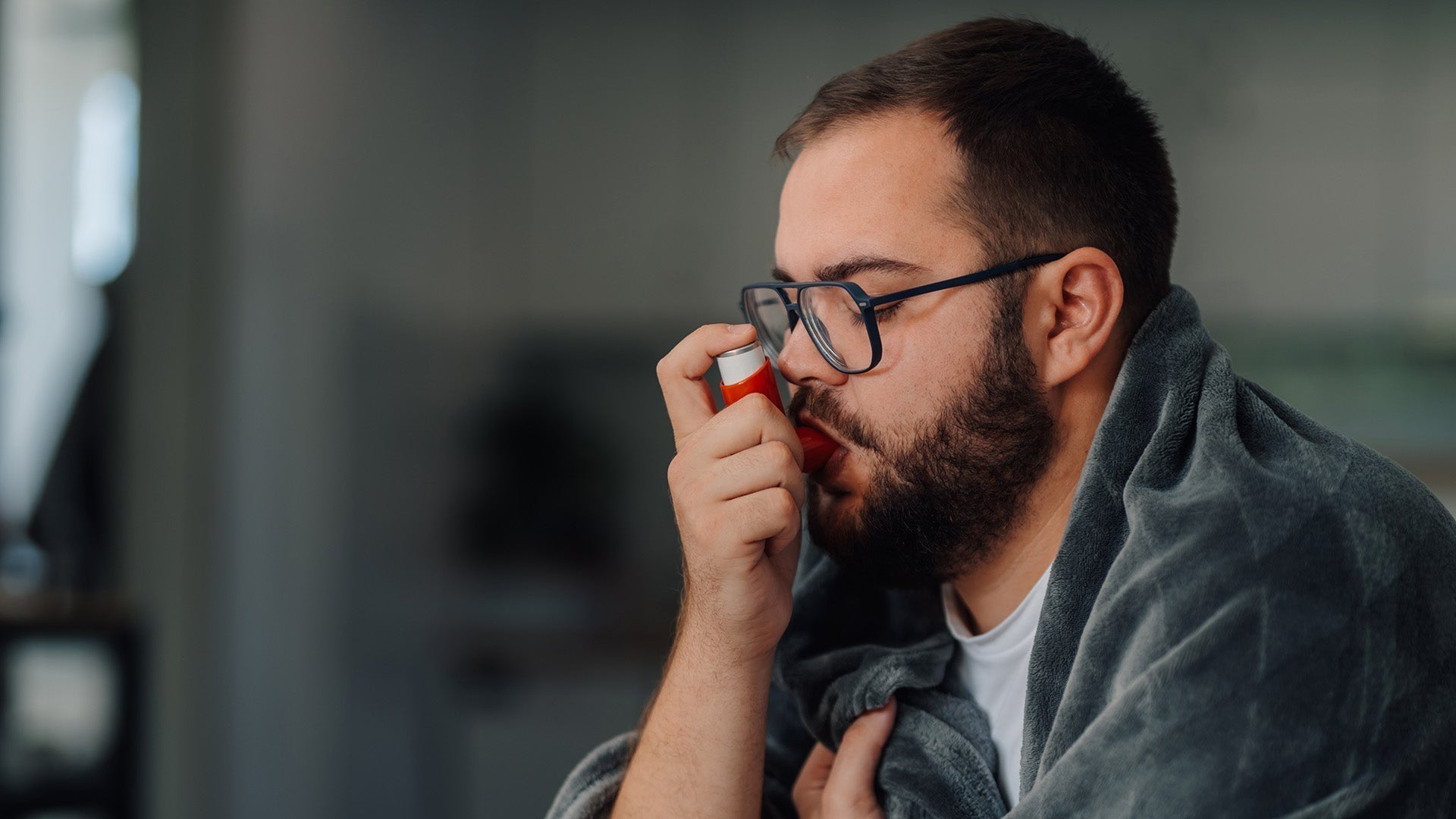
Tags
Breathing Easier: Solutions for Managing Asthma and Allergies
According to the Asthma and Allergy Foundation of America (AAFA), over 100 million people in the U.S. are affected by asthma and/or nasal allergies. Symptoms can include wheezing, shortness of breath, coughing (for asthma), sneezing, congestion and itchy eyes (for allergies). Learn how various at-home testing tools and management options can make it easier to monitor and control respiratory symptoms from the comfort of your own home.
Read more
Tags
BE FAST: Recognize These Signs of Stroke and Save a Life
Every year, approximately 795,000 Americans experience a stroke with someone dying from one about every three minutes. Additionally, the American Heart Association reports that nearly 75% of stroke patients have dysfunction and 15–30% have severe disability. Fortunately, early recognition of symptoms and rapid intervention can significantly improve stroke treatment outcomes-making the difference between lifelong disability and a full recovery.
Read more
Tags
From Awareness to Action: Take Charge of Hypertension
Learn what healthy blood pressure looks like and how digital health apps and remote monitoring can make it easier to keep track of your blood pressure and protect long-term health.
Read more
Tags
Supporting Mental Health with Help, Action and Connection
Nearly one in 4 U.S. adults (58.7 million people) live with common mental health conditions like major depressive disorder, attention deficit hyperactivity disorder and panic disorder among others. While these numbers are concerning, people living with a mental health condition can get better, recover and thrive. Learn more about resources and ways to support your mental well-being.
Read more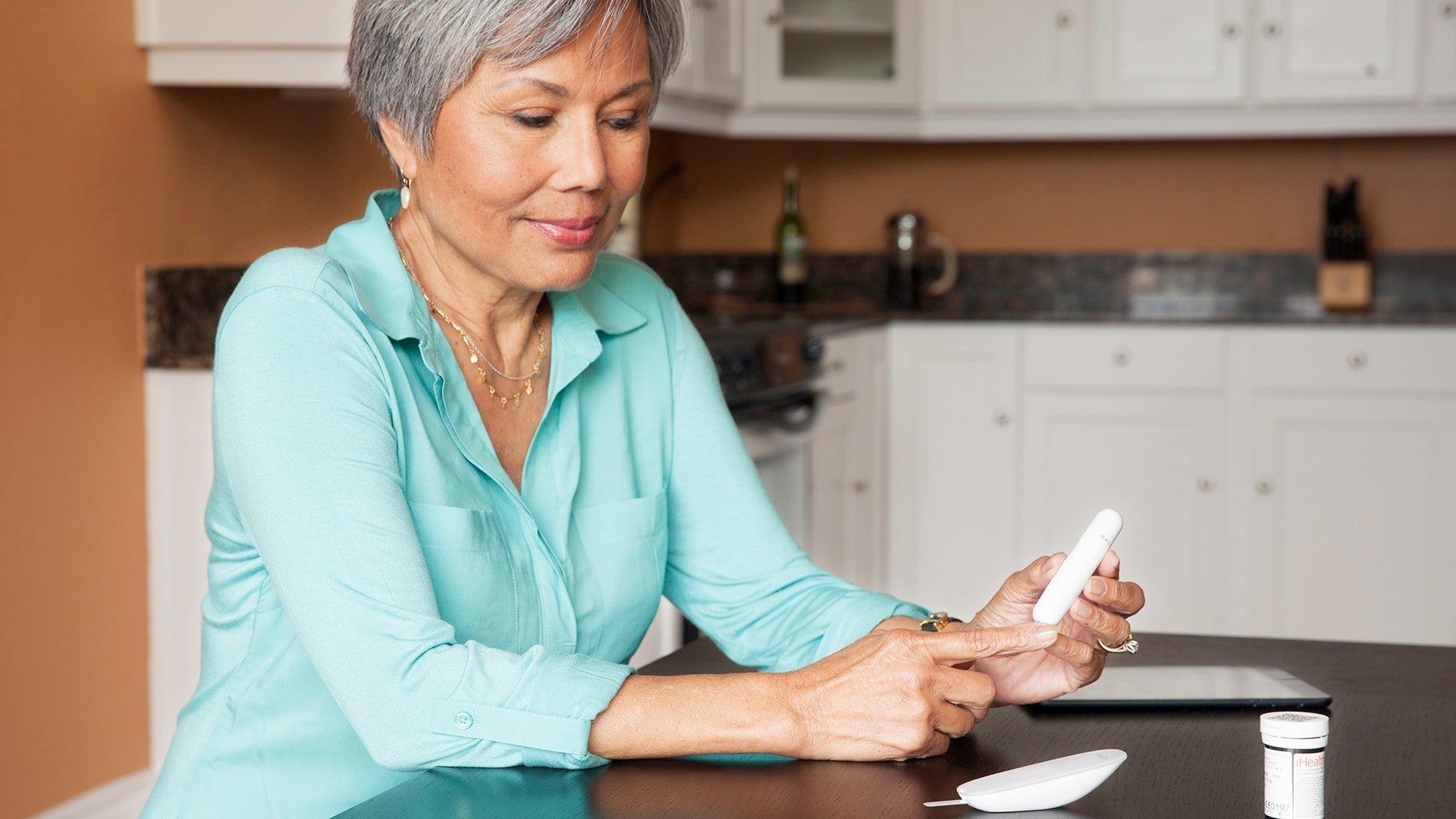
Tags
Five Signs It’s Time to Start (or Re-start) Using a Glucometer
Whether you’ve just been diagnosed with diabetes or you’ve been managing it for years, there are times when starting (or re-starting) regular blood sugar checks can make a major difference. Caroline Thomason Bunn RD, CDCES, a leading diabetes educator and writer featured in Healthline, Forbes and USA Today, dives into the five signs it's time to start (or re-start) using a glucometer.
Read more
Tags
World Immunization Week: Celebrating the Power of Vaccines
Vaccinations remain one of the most powerful tools in modern medicine, credited with preventing millions of deaths and controlling the spread of numerous infectious diseases. Despite overwhelming evidence supporting vaccine safety and effectiveness, vaccine hesitancy remains one such challenge—which can be solved by educating on the proven efficacy of immunization.
Read more
Tags
Improving Clinical Outcomes for Chronic Conditions with Remote Patient Monitoring
Remote patient monitoring is transforming the way we manage chronic conditions. Read how iHealth's innovative medical devices and Unified Care’s team helped patients bring their diabetes under control—one measurement at a time.
Read more
Tags
World Health Day 2025: The Importance of Maternal and Newborn Health
Managing diabetes during pregnancy is crucial for both mom and baby's health. With early screenings, glucose monitoring technology and proper care, we can help ensure healthier outcomes for mothers and their little ones. Join us during World Health Day in celebrating and supporting maternal and newborn health initiatives for the best possible start!
Read more
Tags
Transforming Chronic Care Management with AI Solutions
Artificial Intelligence (AI) is helping to reshape how chronic diseases like diabetes, heart disease and chronic obstructive pulmonary disease (COPD) are managed. By integrating predictive analytics, personalized treatment approaches and continuous monitoring technologies into services from healthcare providers, these innovations improve patient outcomes by enabling early detection and personalized medical interventions.
Read more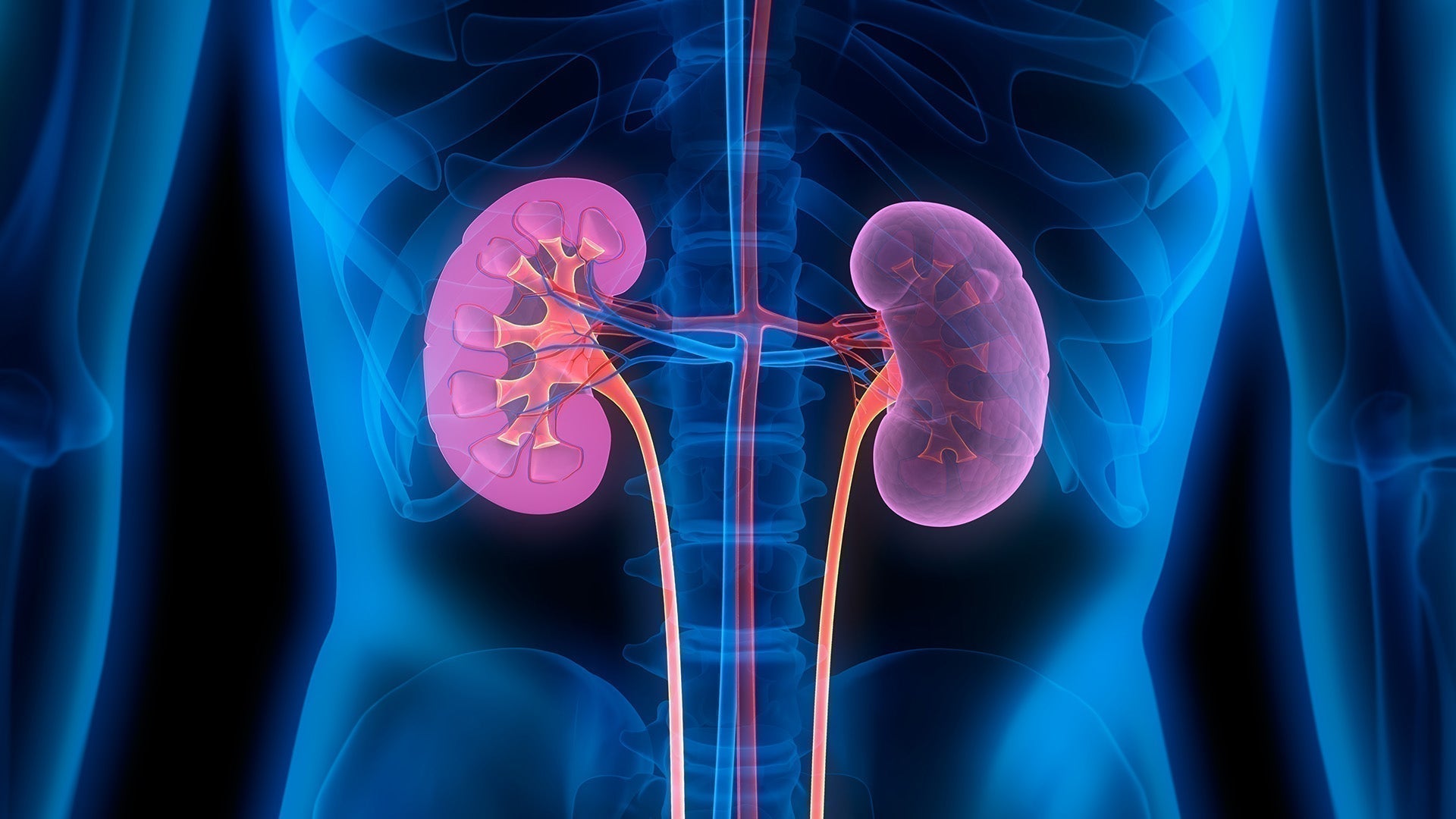
Tags
Managing Chronic Kidney Disease
Chronic kidney disease (CKD) is a progressive condition characterized by the gradual loss of kidney function over time. Effective CKD management combines blood pressure control, glucose monitoring and weight maintenance—along with medication adherence. These strategies can slow CKD progression, reducing the risk of complications and improving long-term outcomes.
Read more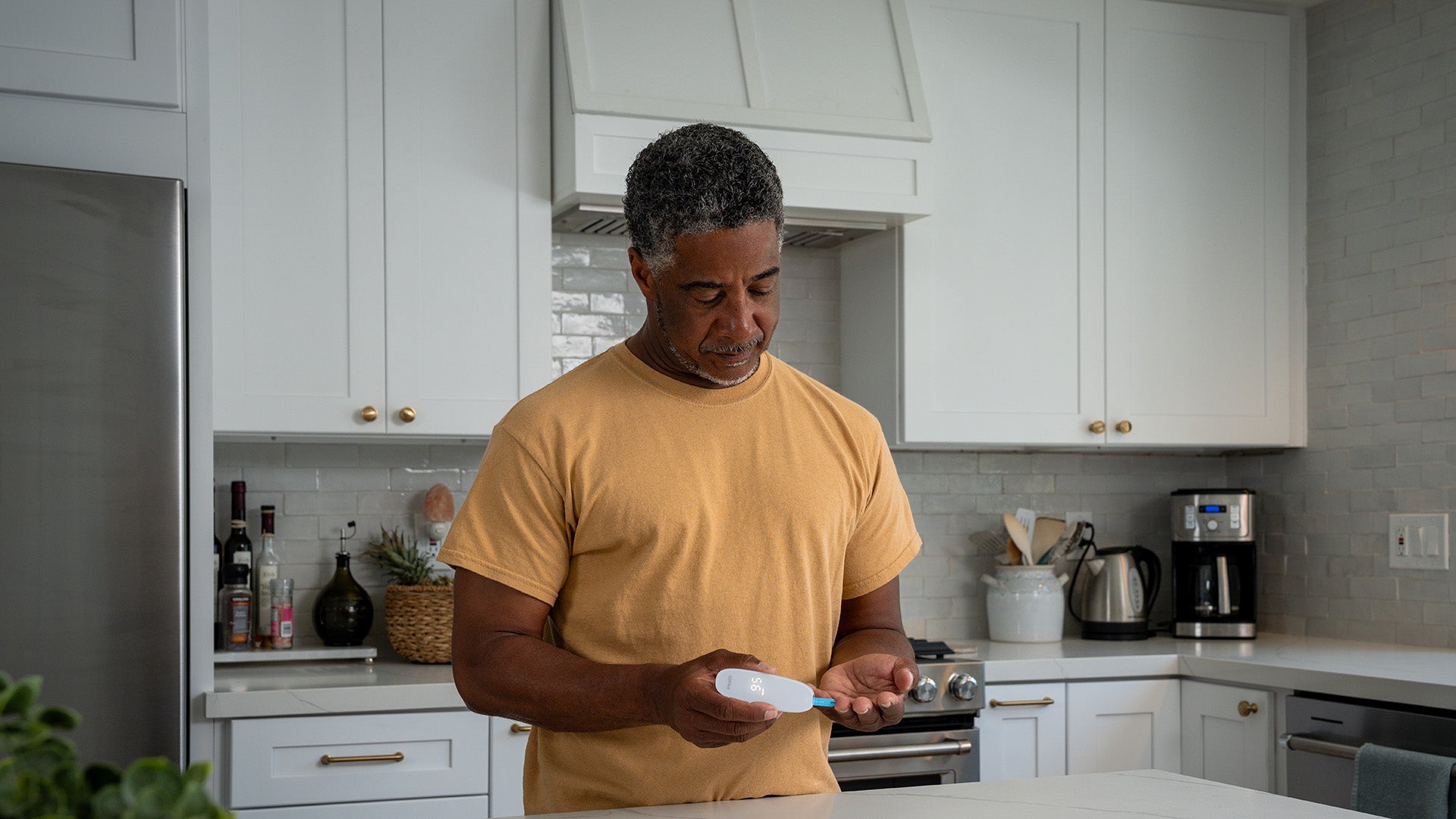
Tags
Managing Your Diabetes with Blood Sugar and Nutrition Tracking
In the US, 38 million individuals are affected by diabetes, which can lead to serious health complications. Learn how to effectively manage diabetes through blood sugar monitoring and nutritional awareness, which can lead to better informed health decisions.
Read more
Tags
Protecting Our Loved Ones: Improving Patient Safety for Long-Term Care
Long-term care facilities face challenges to patient safety due to residents' complex health conditions and communal living. The COVID-19 pandemic emphasized the critical need for patient safety in these settings, especially for the aging population. Learn about the systemic issues like staffing shortages and technology adoption that must be addressed to ensure that residents receive the high-quality care they deserve.
Read more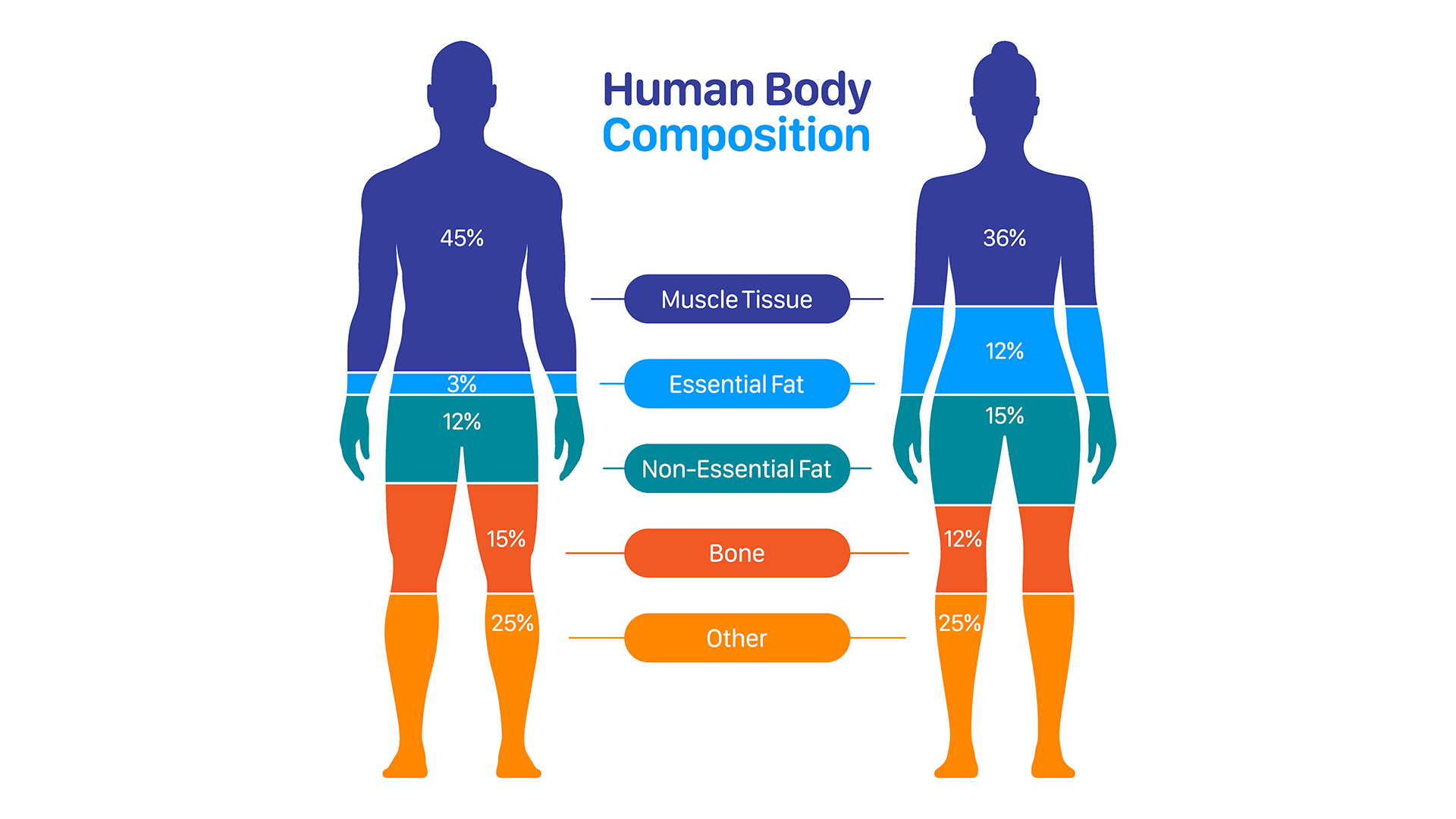
Tags
Understanding Body Composition: The Intersection of Nutrition and Modern Technology
Body composition, which is the proportion of fat, muscle, bone and water in your body, offers a comprehensive insight into your physical well-being. Learn how technology and mindful eating habits help achieve improved health and wellness goals—whether it's muscle building, fat loss or just maintaining a healthy weight.
Read more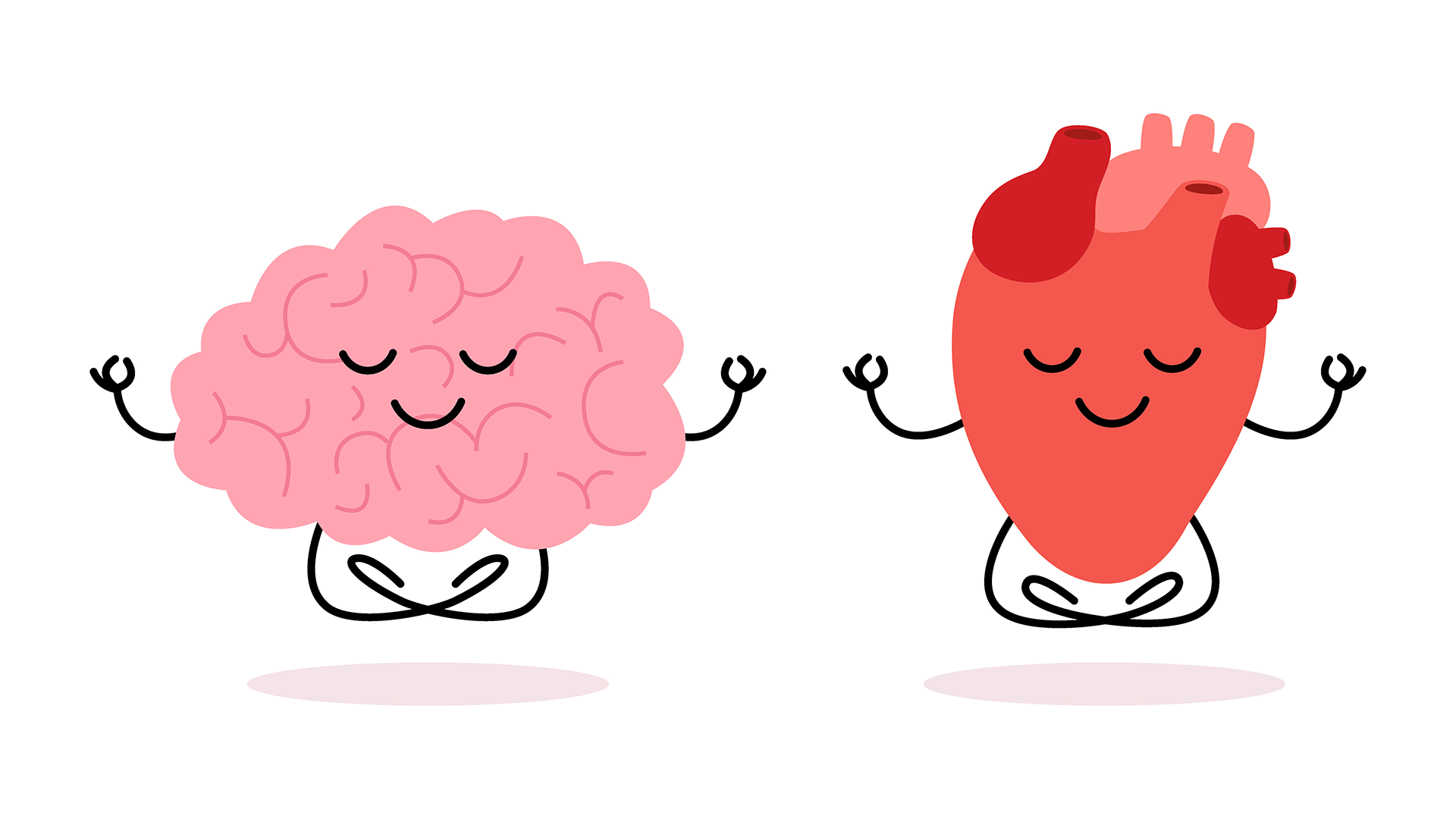
Tags
The Mind-Heart Connection: How Mental Health Affects Cardiovascular Well-Being
Stress, anxiety and depression can lead to unhealthy lifestyle choices and can increase the risk of heart disease, hypertension and other cardiovascular issues. Learn about the impact of mental health on heart health and how implementing lifestyle changes can reduce the risk of heart disease and improve overall well-being.
Read more
Tags
Caring Hearts: How Chronic Care Management Supports Seniors and Their Loved Ones
As seniors age, they face a growing number of health challenges, including chronic diseases like diabetes, heart disease, hypertension and chronic obstructive pulmonary disease (COPD). Chronic care management (CCM) provides elderly individuals and their families a structured and proactive program for ongoing medical needs using coordinated healthcare services, improved medication management and continuous patient education.
Read more
Tags
Lower the Risk of Congestive Heart Failure with Blood Pressure Monitors
Congestive heart failure (CHF) is a serious and chronic condition among aging populations in which the heart struggles to pump blood effectively, leading to fluid buildup in the lungs, legs and other body tissues. Learn how blood pressure monitors can help lower the risk of CHF.
Read more
Tags
How Digital Smart Scales Can Help Reduce the Chances of Heart Disease
Heart disease is the leading cause of death in the United States—responsible for over 680,000 deaths in 2023. Digital smart scales can help play a role in heart health management by tracking multiple health metrics, provide real-time insights and integrate with digital health platforms.
Read more
Tags
Supporting the Elderly and Immunocompromised Health with Remote Patient Monitoring
Remote patient monitoring (RPM) systems have transformed healthcare by offering a lifeline to elderly individuals and the immunocompromised. Learn how these systems empower them to manage chronic conditions and detect abnormalities while enabling caregivers and healthcare providers to monitor vital metrics in real-time.
Read more
Tags
Pulse Oximeters: A Helpful Tool for Those with COVID
A pulse oximeter is a small, non-invasive clip-on device that measures the percentage of oxygen in your blood—also known as oxygen saturation or saturation of peripheral oxygen (SpO2). Using a pulse oximeter can assist in tracking your respiratory health, especially when it is affected by COVID-19.
Read more
Tags
Navigating COVID-19 and Flu Risks as Kids Return to School
As children return to school, the joy of reuniting with friends can coincide with a surge in respiratory illnesses and the threat of passing them on to family members when they get home. The convergence of COVID-19 and flu strains A and B pose significant concerns, particularly for families with elderly or immunocompromised members. Recognizing the risks and implementing preventive strategies can help safeguard both children and their loved ones.
Read more
Tags
Managing Health, Fitness and Diabetes for the New Year
The start of a new year motivates us to create fresh goals, however, for those with diabetes, navigating exercise requires careful monitoring of blood sugar levels. Glucometers can play a crucial role in this process and empower you to achieve your fitness goals, offering invaluable data about blood glucose fluctuations before, during and after exercise.
Read more
Tags
Kickstart Your New Year with Heart-Friendly Resolutions
As the New Year approaches, many of us are reflecting on ways to prioritize our health. One critical yet often overlooked aspect of wellness is maintaining a healthy blood pressure—which is a cornerstone of heart health and longevity. Let’s explore why this matters and how lifestyle choices—combined with the right tools such as blood pressure monitors—can help you achieve your health goals.
Read more
Tags
The Holiday Guide to Glucometer Readings: Managing Blood Sugar with Confidence
The holidays bring joy, family gatherings and an abundance of food—but they can also be challenging for people managing diabetes. During festive seasons, glucometer readings offer invaluable insights into your blood sugar levels, providing crucial data to guide your daily decisions and optimize your health.
Read more